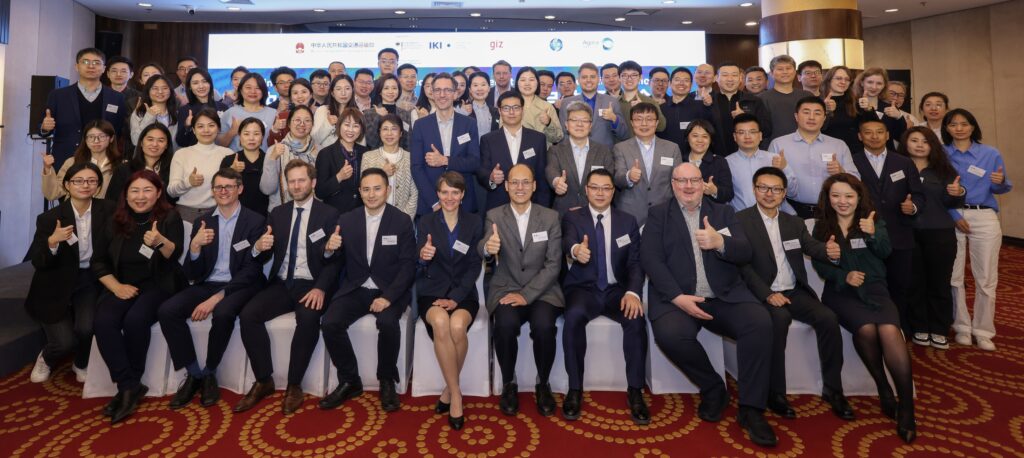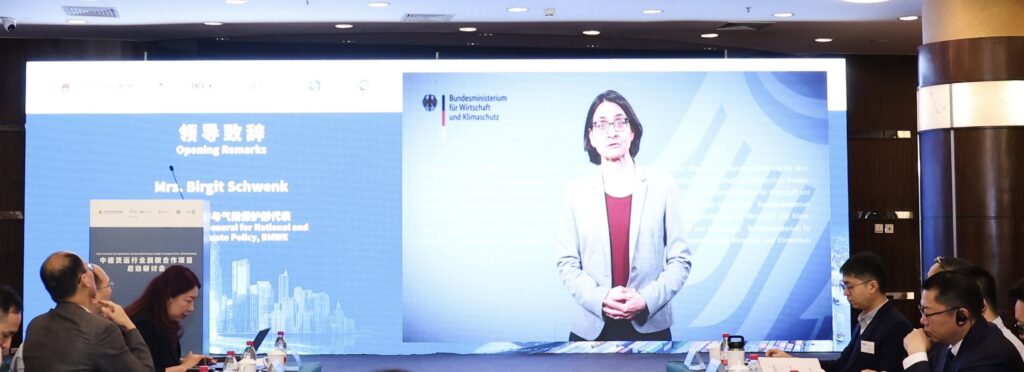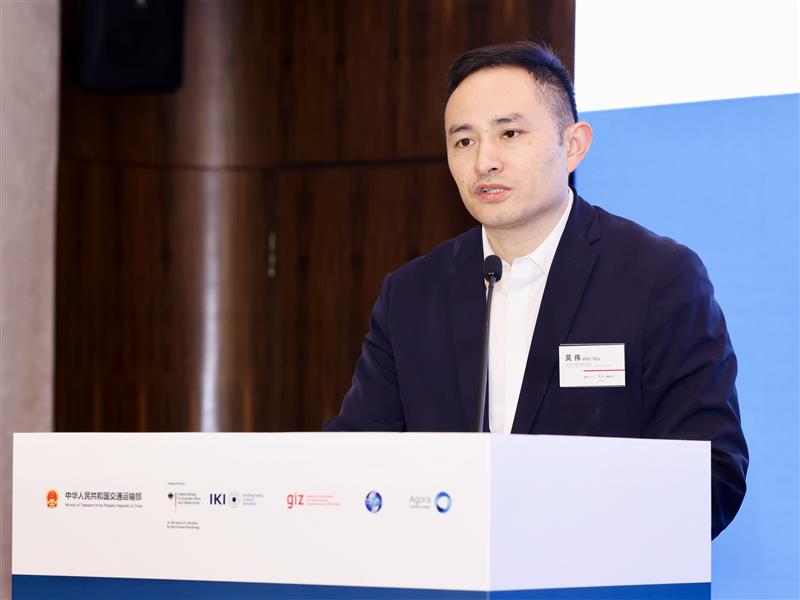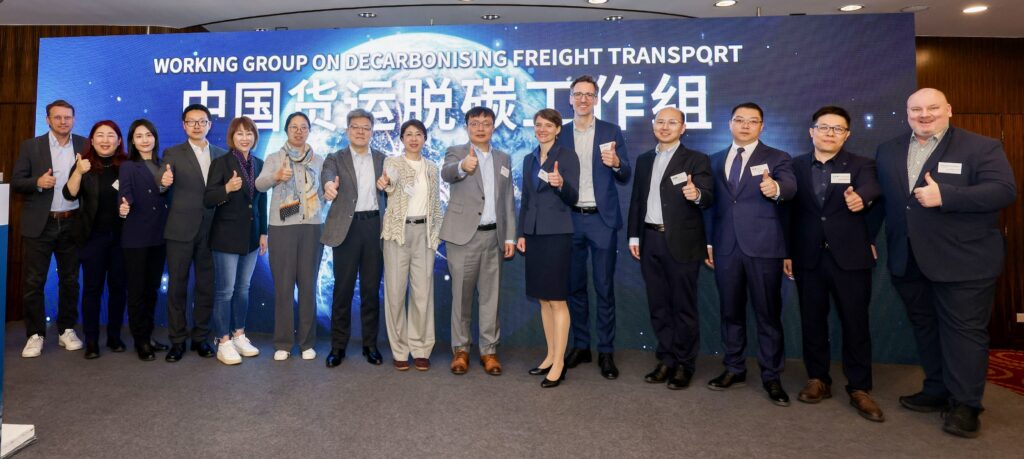
The global freight sector is currently facing a double challenge: There is an increasing transport demand for goods delivery, both in long haul and in urban logistics. Meanwhile, as one of the main contributors to transport-related CO2 emissions, the freight sector is under urgent pressure to decarbonise to achieve global climate targets.
In 2024, China completed a total of 57.8 billion tons of freight transport, with 72.5% of this coming from road freight (National Bureau of Statistics, 2025). Similarly in Germany, road freight accounted for 74.7% in 2022 (BMDV, Transport in Figures). This shows that freight transport still relies heavily on road transport, particularly diesel-powered heavy-duty trucks.
China and Germany are thus experiencing similar challenges when it comes to decarbonising the freight sector – even if each country has their own advantages, experiences and insights in logistics, multi- and intermodal integration, digitisation and decarbonisation. Exploiting synergies and jointly developing solutions for decarbonisation is the focus of the new project “Sino-German Cooperation on Decarbonising Freight Transport (CDFT).” On 1 April 2025, Chinese and German stakeholders launched the new CDFT project, commissioned by the Federal Ministry of Economic Affairs and Climate Action (BMWK) under the International Climate Initiative (IKI), in partnership with the Chinese Ministry of Transport (MoT) and further implementing partners.
As two major transport markets with a similar challenge, China and Germany can both benefit from a collective focus and strengthened cooperation.
Birgit Schwenk, Deputy Director General for National and European Climate Policy, BMWK

The CDFT project takes a holistic approach to freight decarbonisation, incorporating research, pilots and policy advisory towards zero-emission freight transport both in long-haul and urban freight in China. Moreover, project activities foster enhanced international exchange on ambitious freight decarbonisation strategies and roadmaps.
Let us join hands to create a future for low-carbon freight.
WU Wei, Deputy Director, Road Freight Transport Division, Transport Service Department, MoT

In the kick-off event, implementing partners shared the respective visions and policy frameworks for low-carbon freight transport in both countries. This showed that modal shift in long-haul freight transport, coupled with measures to accelerate electrification of fleets are core pillars in both countries. However, challenges such as the high cost of EVs, limited charging infrastructure, and the need for stronger policy support were identified as obstacles. Furthermore, the importance of digitalisation and standardisation for enhancing logistics efficiency was underscored. Regarding urban delivery, the project will build cooperation and exchange on innovative approaches, such as the economic and environmental potential of autonomous delivery of goods. By refining low-carbon freight strategies through international exchange, the project aims to create impactful, replicable solutions for both China and Germany.
To foster deeper industry dialogue and strengthen public-private collaboration, the project’s official kick-off also marked the launch of a new multi-stakeholder Working Group on Decarbonising Freight Transport in China. The Working Group is convened by the Global Sustainable Transport Innovation and Knowledge Center (GSTIKC) and GIZ, under the guidance of China’s Ministry of Transport (MoT). It brings together representatives from 15 leading companies, government agencies and civil society representatives.

With a focus on identifying regulatory responses for overcoming barriers to faster transformation of the freight industry – like the swift deployment of electric trucks – the Working Group aims to generate actionable policy recommendations.
The global freight industry must collaborate across the entire value chain.
LI Disi, Director, International Cooperation and Exchange Center, GSTIKC
The city of Suzhou shared its experience on how local governments can accelerate progress in low-carbon freight. Suzhou is at the forefront of realising modal shift, integrating electric vehicle infrastructure and pioneering last-mile delivery solutions, such as drone-based services. These initiatives have not only reduced emissions but also improved logistics efficiency and fostered innovation.
The Sino-German Cooperation on Decarbonising Freight Transport project is implemented by the Deutsche Gesellschaft für Internationale Zusammenarbeit (GIZ) GmbH and is funded through the International Climate Initiative (IKI) of the German Federal Ministry for Economic Affairs and Climate Action (BMWK).
 GIZ, BMWK and MoT celebrate the start of the new project "Sino-German Cooperation on Decarbonising Freight Transport (CDFT)" | © GIZ China
GIZ, BMWK and MoT celebrate the start of the new project "Sino-German Cooperation on Decarbonising Freight Transport (CDFT)" | © GIZ China

Carolin Bernhard
carolin.bernhard@giz.de
Visit profile